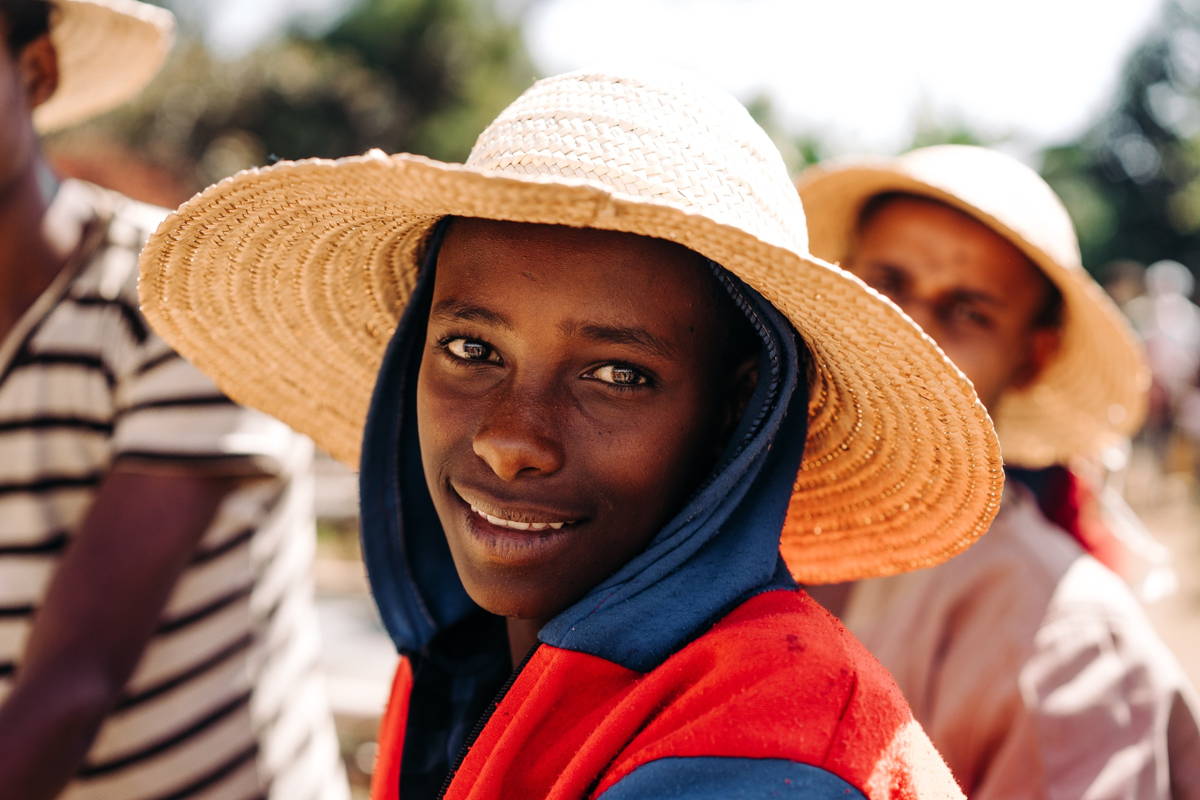

A contribution from Stephan Eicke from 19 October 2021
Since the Covid outbreak, there have been supply shortages worldwide in any industry. Countless companies had to close down, declare bankruptcy or apply for governmental aid. No sector of life has escaped unscathed, not even coffee. Since many of our coffees are grown in Ethiopia, we took a closer look at how farmers and exporters have dealt with the challenges in their home country.
When Ansha opened her email account one morning in March of 2020, she knew it was getting serious. For several weeks she had had a bad feeling about the news. Now she had confirmation that her worries were warranted. More and more clients of hers canceled their trips. For Ansha, this was a catastrophe. She is founder and CEO of CoQua Trading, a consulting business which advises us at Coffee Circle which raw coffees to select and buy. CoQua Trading also executes projects for quality control and enhancement and connects potential customers with exporters, unions and farmers.
The first case of Coronavirus in Ethiopia was reported on March 13, 2020. The government acted quickly, closed schools and canceled public events only three days later. One month afterwards, they declared a state of emergency. Nobody traveled to or from Ethiopia. Clients couldn’t arrive to taste coffees, visit farmers, or attend cuppings. Unfortunately, it is exactly this close personal relationship that CoQua Trading prides itself with. Will clients remain faithful to the organisation and, with that, also to cooperatives and exporters? Will orders decline sharply and farmers sit on their beans forever? All these questions were keeping Ansha awake at night.
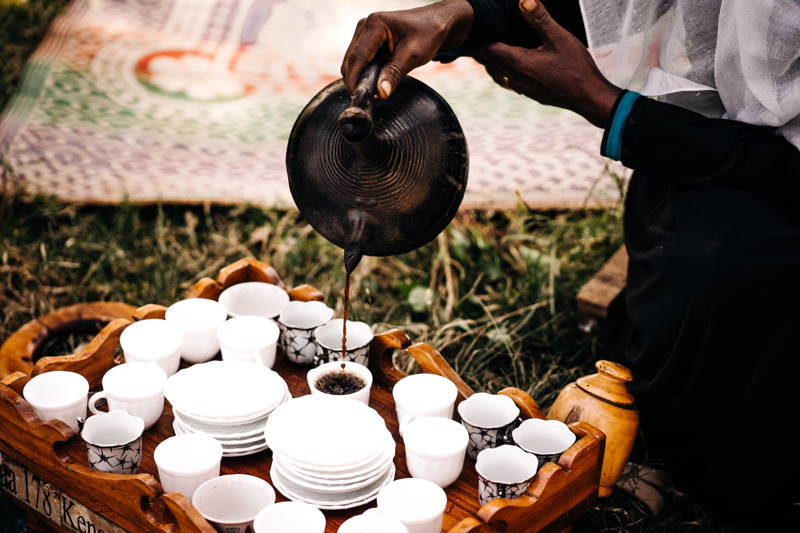

Creating Alternatives Quickly
Ethiopian farmers were lucky initially since the harvest in their country takes place from October to December. The cherries had already been picked and processed when Coronavirus broke out. The immediate danger was not to let the cherries rot on the field. It was the exporteurs who now had to carry the risk since they had already bought the lots from the farmers. Due to the pandemic, some customers canceled their orders. It is one of Ansha’s responsibilities to prevent exactly that.
Stephan Eicke: Ansha, potential clients couldn’t travel to Ethiopia anymore. How did you solve that problem?
Ansha Yassin: We were very worried because our work is very active and physical. Clients come to us, we interact with farmers, send coffee samples into our laboratories for cuppings. Now it isn’t as active anymore as it used to be but we still sold coffee. We sent samples to clients. We cupped our coffees here and sent them the results. They then did the same with the samples we had sent. This way we could work with them and keep our business going. We survived because we simply sent a lot of samples. It was more expensive but we could even sell more coffee than before Covid. […] Clients bought their coffees directly from cooperatives. We only receive a commission for our work, for promoting Ethiopian coffee and for representing farmers. Clients and farmers negotiate prices directly. Some cooperatives raised their prices slightly, but these decisions are always made together.
How was the work of the harvesters affected? Did you experience a labour shortage?
No, the work itself was hardly affected, if at all. The harvesters spread out on the field, they keep their distance. Some of them wear masks. When meetings take place, they have to wear masks as a rule. It is also worth pointing out that many harvesters in more rural areas don’t know much about Covid.
What do you mean by that?
I know many farmers and other people who are aware that Covid exists but don’t take it seriously. They think they won’t be affected. That’s why we have seen so many cases and deaths here. In more rural areas, 3 or 4 people out of 1.000 may wear a mask. For everybody else nothing has changed. Everybody is kissing and hugging and living as if nothing has happened since the beginning of 2020. […] If the Delta variant comes here, it will be very dangerous because people here don’t take good care of themselves or others.
Why do you think that is?
They say, “We are religious, we eat healthily, eat onions and pepper. Covid won’t affect us.” When I tell people to please wear a mask and be careful they say, “God will protect us.” That’s what they think. “We eat pepper. That will protect us.” In Addis Abeba the situation is slightly better. Most people there use a mask. You can only use public transport if you wear one. In more rural areas like in Kaffa hardly anybody wears a mask.
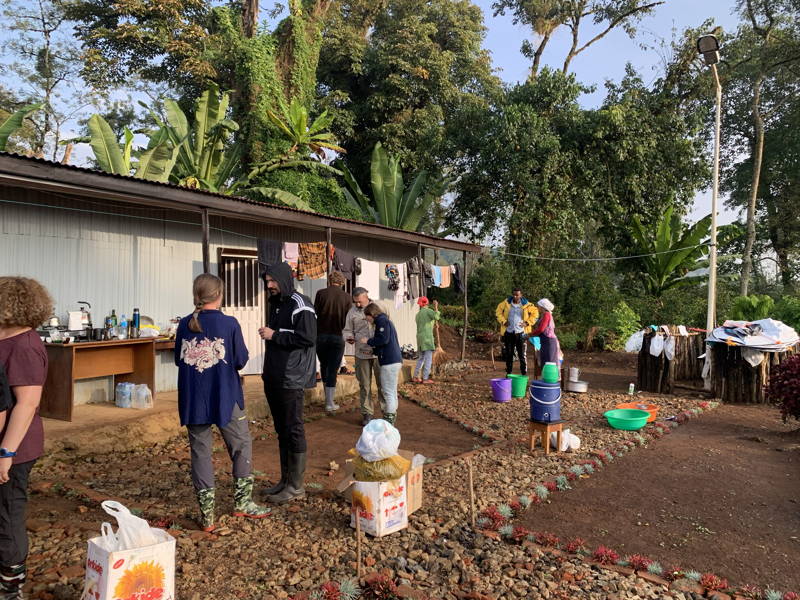

Harvesters continued picking
The worst fears surrounding coffee picking and processing haven’t come true due to the aforementioned naivety towards a global virus. In the first half of 2020, at the beginning of the outbreak, a study concerning changes in income was conducted among 713 Ethiopian households which work in coffee exclusively. Due to the first lockdown, which lasted two weeks, 57 % of these households reported to have lost income. 70 % bemoaned the fact that they were now financially worse off than a year before. On the other hand, 80 % were optimistic, convinced that one year later – in June 2021 – they will again see an increase in their income and be better off.
Their optimism was justified. While other countries saw a labour shortage for harvesting, Ethiopia didn’t have that issue when the 2020/2021 season started. Eden Kassahun of Red Fox Coffee Merchants, which puts farmers in touch with potential buyers, concluded in April of 2021: “You’ve seen that people are not really aware that there is a pandemic, especially at this point post-lockdown. Of course last year there was an issue because of the lockdown shutting down transport, preventing workers from traveling to jobs. But this year, no, it doesn’t really affect us.” This naivety as described by both Ansha and Eden led to infections and deaths nationwide. Since March of 2020, the infection rate in Ethiopia has risen steadily. Until October 2021, Ethiopia saw 356.000 reported infections and 6.000 deaths. However, these are only the official numbers. Ethiopia counts 115 million citizens. These numbers are comparable with the infection rates in Egypt (314.000 infections with 103 million citizens). Germany counted 4.3 million infections and 83 million citizens until October 2021 – however, many more tests were conducted, particularly because people have easier access to health care. A direct comparison unfortunately is misleading and does not say much due to the vastly different structures of the two countries.
Farmers noticed the effects of the pandemic and the lockdown before the harvest. Two problems were especially pressing: Supply shortages for tools, and a labour shortage for the preparation of the fields. Due to the ban on public gatherings, many farmers were not able to execute their plans and be as productive as they had hoped. Ademe, a farmer from Ethiopia, summarised the situation thus: “I planned to stump a quarter of my land but could not do so due to the shortage of hired labor.” Supply shortages for tools led to an increase in pricing. Many farmers could not afford the tools anymore they needed and were therefore less productive. To compensate for this, foundations increased and extended their financial aid and educational support. Institutions such as the HRN-Stiftung support 4.500 households of coffee farmers in Ethiopia alone.
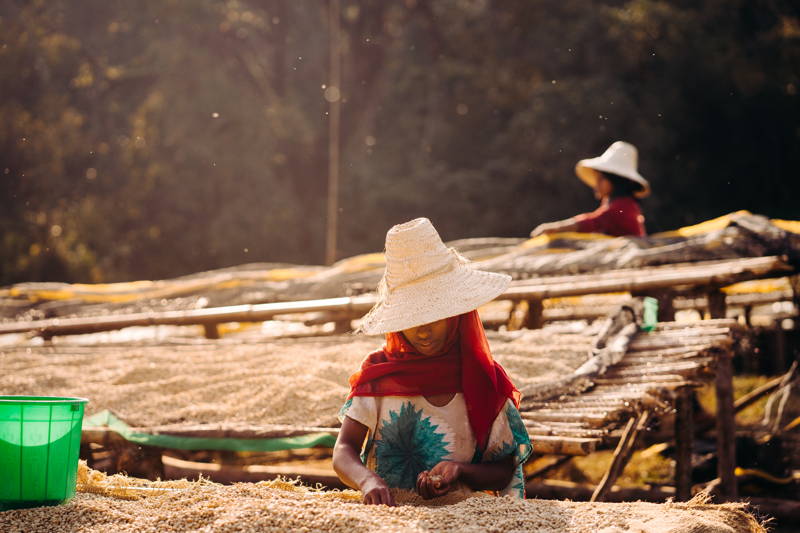
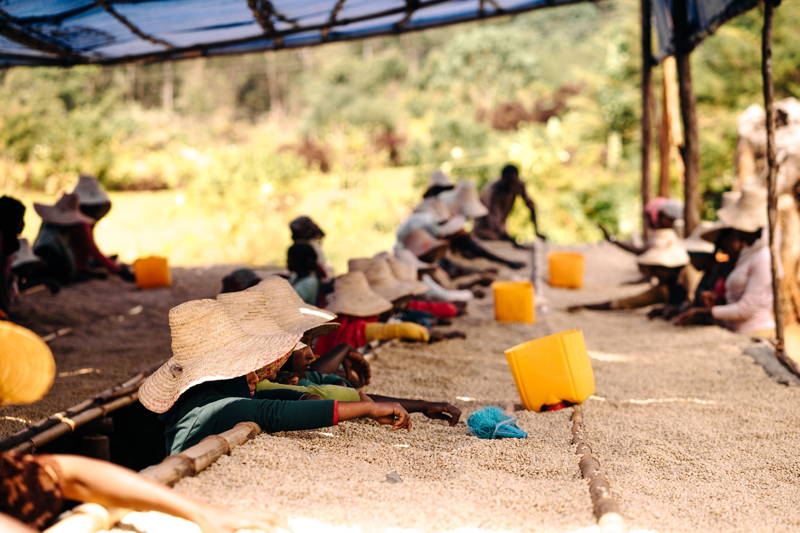
Government Protects Ethiopian Economy
The effects of the pandemic on Ethiopian households and the coffee industry as a whole are difficult to measure especially because the country has suffered from two separate problems at the same time: Since November 2020, a war is raging between the army and rebels in the Tigray region. Ansha and CoQua Trading could not travel to one of their laboratories as a result, and had to transport equipment for cuppings to Jimma, which in turn led to delays.
Atrie Weno, who heads the exporting company Daye Bensa, observed that transport delays due to Covid were not as severe in Ethiopia as in other countries. They were not directly linked to restrictions, which had been decided upon by the government, but to lorry drivers who reported sick and had to quarantine due to a positive Covid test. The Ethiopian government was careful to avoid longer lockdowns and more severe restrictions — after all, coffee production and -export make up a large part of the Ethiopian economy. This economy is fragile and is being protected by the politicians.
The demand for coffee has not declined as significantly over a lengthy period as people had feared, from the beginning of the pandemic to today, the end of 2021. Jorge Cuevas, Chief Coffee Officer of Sustainable Harvest Coffee Importers in Mexico, even sees Covid-19 as a global chance to understand and respect dependencies better: “For four or five years, the world market price for coffee has been especially low. That hurts the producers. In parallel, the coffee industry in the developed world is booming. Third and Fourth Wave coffee are more popular than ever. […] Coffee consumption is increasing. There is a clear diversion. It is time for a reset. This situation harms everybody at the same time. Now we have the chance to think, to look inward and decide what we can do. […] Production costs are rising, but prices for consumers are rising more sharply. It is more difficult to plan, to order inventory and decide what you will need at what time. We will come out of this crisis stronger. There will be a better understanding for us as a community. We will be better prepared and more willing to make sacrifices and compromises which make us stronger as an industry.” Globally, the demand for coffee did not decrease but is as strong as before, highlights Cuevas.
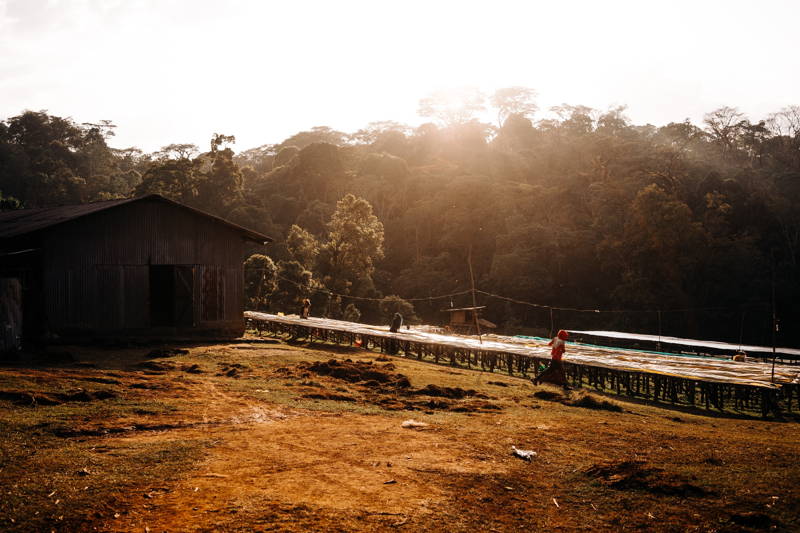
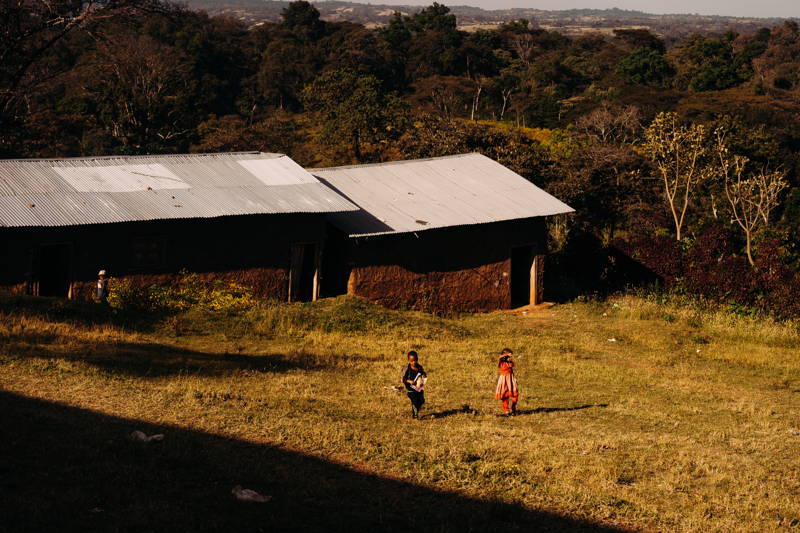
Conclusion
That doesn’t mean that Ethiopia escaped completely unscated out of this pandemic. Our roasters Hannes and Robert expect, after having spoken with Ethiopian farmers and exporters, to see a delayed effect with additional price increases. And even though Ethiopia has not conducted enough tests to give a clear insight into how it has been affected by Covid, its society is suffering from the global and domestic effects. A team of scientists researched these effects of the pandemic on the mental health of coffee shop vendors in Harar who had to close temporarily. The study found that one in five people experienced symptoms of depression during the pandemic. Depression was rarer among people who had finished elementary school. Those who had to provide for a large family were more at risk to develop depression.
The restrictions as described above, which lead to delays and a decreased productivity, were responsible for price increases. However, Ethiopia was not as badly affected by the pandemic as, for example, Brazil — a country that also suffered from frost in July — and Vietnam where the extensive lockdown led to supply shortages for Robusta beans and a price increase of up to 50 %. Due to missing studies and other conflicts like regional wars we can not at the present time foresee what effects the pandemic will have on Ethiopia, its coffee farmers and partners in the long run.
Meanwhile, the first people are being vaccinated against Covid-19 in Ethiopia (October 2021). They include health workers, older people of the community and those with pre-existing conditions.
Text by Stephan Eicke